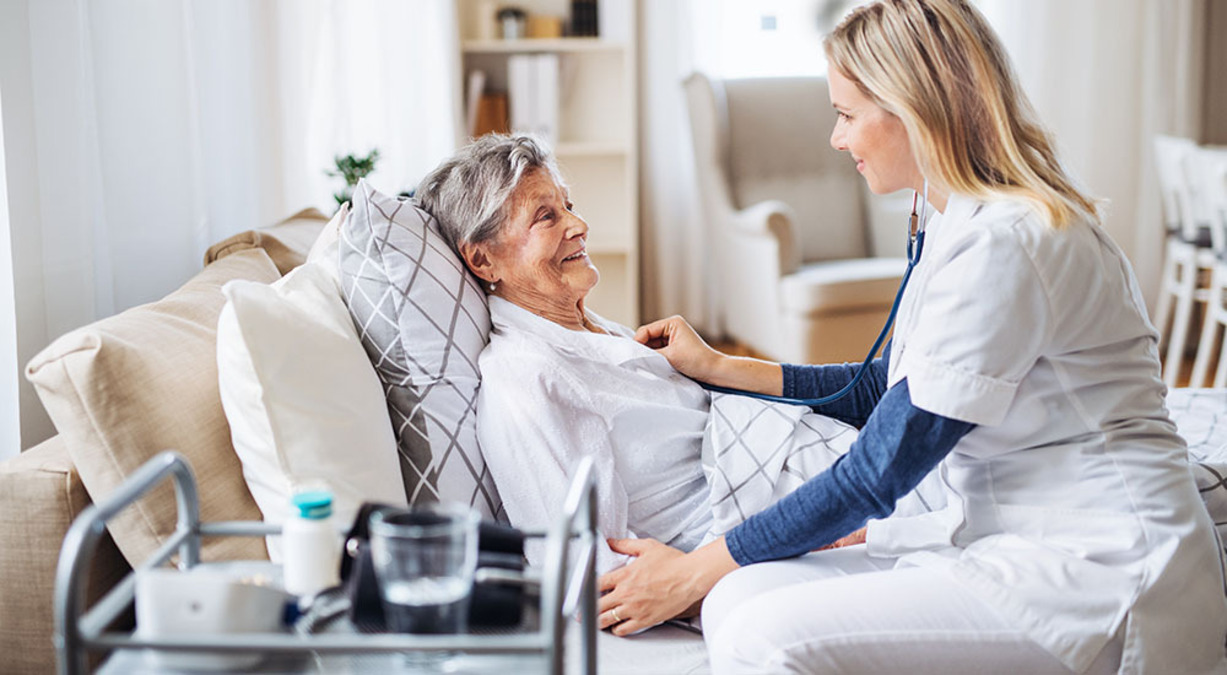Most seniors are happy, healthy and fully independent. However, by its very nature, the aging process eventually brings about physical and mental changes that can interfere with an active and independent lifestyle.
WHEN DOES A SENIOR NEED HELP AT HOME?
A change in functioning doesn’t have to necessitate a move to assisted living or a nursing home, but it does indicate a need for extra help to support a senior’s desire to age in place. Family members often step in to provide support and supervision, but hiring a professional caregiver for in-home help may be necessary at some point to address an elder’s increasing care needs. Ultimately, involving a home health aide can benefit both the seniors and their family caregivers.
Recognize the Signs That an Aging Loved One Needs Help at Home
Changes in personal appearance and household cleanliness typically indicate a shift in physical and/or mental status. Even subtle behavioral changes may imply that an elder is no longer capable of completing once familiar tasks without support. Maybe you’ve noticed that Dad’s unopened mail is piling up or that Grandma, once meticulous about her appearance, is wearing dirty clothes and not doing her hair. These are just two real-life examples of the many definitive signs that an individual’s functional abilities are in decline.
It is often apparent upon arrival at a loved one’s home that things have gone awry. Household chores can become challenging for a number of reasons, but when upkeep has stopped to the point of extreme clutter and unsanitary conditions, it is a clear warning that outside help is required for maintaining health and safety in the home. Other signs include inadequate fresh food in the house, evidence of weight loss, forgetting to take medications, and unexplained bruising that often points to changes in mobility.
Deviation from established personal hygiene routines is one of the most common red flags that family members observe. Although seniors may not bathe as frequently as they did when they were younger, a strong smell of urine or body odor or refusal to change out of dirty clothes indicates it is time to step in. A noticeable decline in grooming habits and personal care is a sure sign that a senior is struggling physically and/or mentally to meet their own needs.
New or worsening health issues often indicate that a senior requires a full medical workup and could benefit from skilled help at home. A home health care provider can help an aging loved one monitor their vital signs, manage chronic medical conditions, navigate their complex medication regimen, participate in therapy exercises that improve independence, and care for wounds.
Recognize the Signs of Caregiver Burnout
If you are currently helping your loved one with grocery shopping, housekeeping, transportation to appointments or managing their medications, be honest about how this added responsibility is affecting you, your family and your schedule. Caregiving is emotionally demanding and physically exhausting. It is important for caregivers to recognize the signs of caregiver burnout and acknowledge when it is time to share the workload. If the level of care a loved one requires has become more than you can handle, or your level of involvement is causing anxiety or depression, hiring a home health aide may be the best solution for everyone involved.

